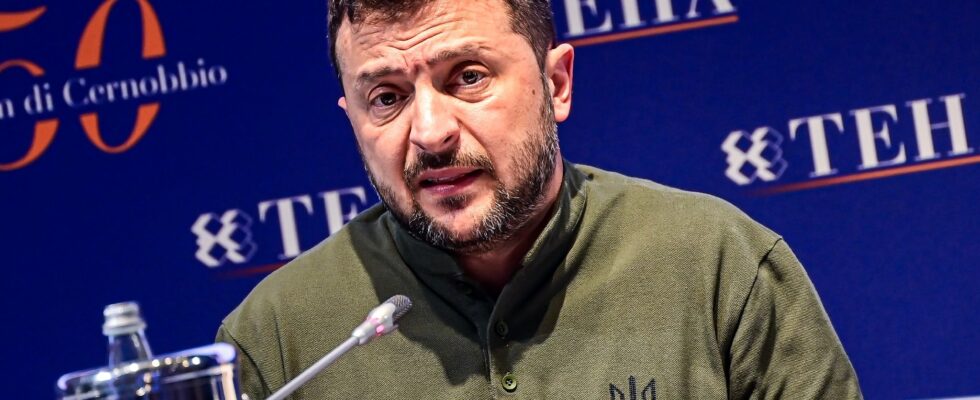“How did I find Zelensky? Very frustrated by the weapons issue…”, commented Republican Senator Lindsey Graham, this Saturday, September 7 at there Republic, leaving a meeting with the Ukrainian head of state. Volodymyr Zelensky has indeed reiterated his calls for obtaining more weapons in the face of the Russian advance in the east of his country. In front of the participants of the European House-Ambrosetti forum in Cernobbio, a sort of mini-Davos organized until Sunday on the shores of Lake Como, the Ukrainian president deplored the continuation of the bans on launching missiles and long-range rockets supplied by the West towards Russia. For him, exerting military pressure on Moscow would make it possible to “motivate” Russia to seek peace.
He arrived at the forum on Friday a few hours after having demanded “more weapons” from his allies, during a meeting of Kiev’s international supporters at the American air base of Ramstein, in western Germany. The following day, the head of state met with representatives of Italian companies and with the head of government, Giorgia Meloni. The Italian Prime Minister assured Kiev of her unwavering support. “We must not fall into the trap of Russian propaganda” by believing that Ukraine’s fate was sealed, she warned.
Hungarian Prime Minister Viktor Orban, opposed to Western aid to Ukraine and close to the Kremlin, had indicated that he would “of course” meet with the Ukrainian president in Cernobbio if the opportunity arose, but no meeting ultimately took place. During their last face-to-face meeting in Kiev, at the beginning of July, Viktor Orban had called on Volodymyr Zelensky to consider a “quick ceasefire”, illustrating their differences, but also those between Budapest and most Europeans. Viktor Orban had sparked anger and incomprehension within the EU by visiting Vladimir Putin a few days later.
Moscow continues its advance in the East
For the Ukrainian president, this mini-Davos is an opportunity to stock up on promises and additional resources, while Ukraine is struggling. Two and a half years after the launch of the Russian invasion, its offensive that began in early August in the Russian region of Kursk has not helped to stop Moscow’s advance in the East. The Russian army is increasing its deadly bombings, such as recently on a military institute in Poltava, in central Ukraine, which left at least 55 dead. At the same time, “Zelensky is less and less popular and more and more isolated,” underlines a columnist for the Czech daily Hospital Noviny. Recently, his XXL reshuffle at the top of power has been watched with interest by his allies who are trying to understand its significance.
While they regularly reaffirm their unwavering solidarity, many governments are faced with divided public opinion as the war drags on. kyiv is all the more worried because the time of large aid packages from the United States – where a return to the helm of Donald Trump is not excluded – seems over. The White House continues to balk for fear of an escalation with Moscow, which regularly raises the nuclear threat. “I don’t think that any single specific capability will be decisive,” declared the American Secretary of State for Defense, Lloyd Austin, at the end of the meeting in Germany.
New military aid of $250 million
Despite these reservations, Western allies continue to supply them with weapons. Washington has promised new military aid of $250 million that will “enable Ukraine to increase its capabilities.” “The Kremlin continues to bomb Ukrainian cities and target civilians. This is a scandal,” he said. London has also unveiled a £162 million (€192 million) contract for 650 short-range lightweight multirole missiles, which can be fired from a variety of land, sea and air platforms.
German Foreign Minister Boris Pistorius has announced the delivery of twelve Type 2000 howitzers, six this year and the rest in 2025, for a total of 150 million euros. Berlin confirmed on Wednesday new deliveries of Iris-T air defense systems, which are to help intercept Russian missiles. For its part, Canada plans to send an additional 80,840 small unarmed air-to-ground rockets to Ukraine as well as 1,300 warheads in the coming months, its Defense Minister Bill Blair also announced in a statement.
